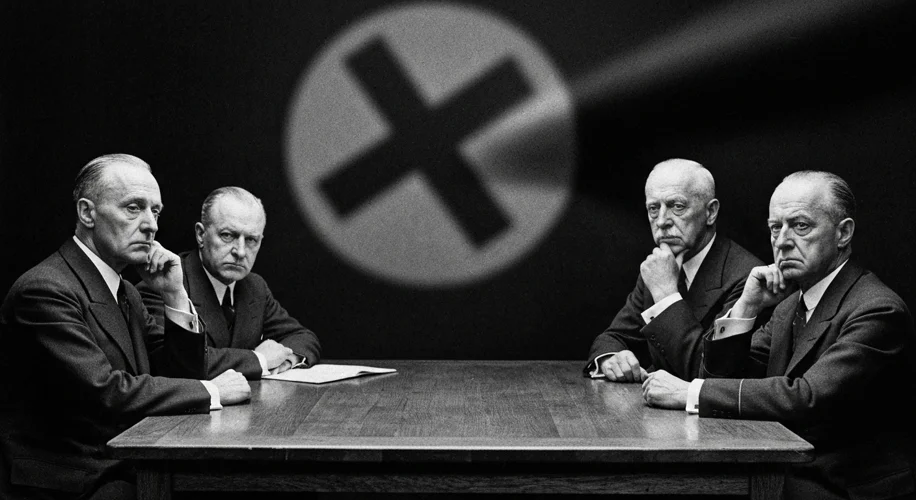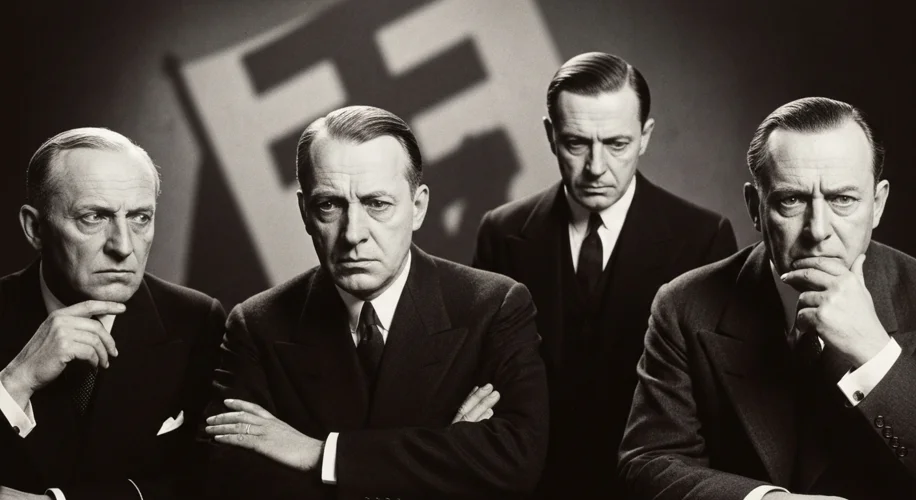The air in Weimar Germany, in the tumultuous years following World War I, was thick with uncertainty. Amidst the ruins of empire and the strains of economic recovery, a new political landscape was being forged. For the men who had led the nation as Chancellor, the rise of Adolf Hitler and the Nazi Party was not a sudden, inexplicable event, but a creeping shadow they had, in various ways, either failed to stop or even, in some instances, actively enabled.
For former Chancellors still living through the Weimar Republic, the ascent of Nazism presented a stark and often horrifying political analysis. They had navigated the treacherous currents of parliamentary democracy, coalition governments, and presidential power. Some had witnessed the fragility of the republic firsthand, while others had grappled with the economic woes that fueled popular discontent. Their perspectives on the burgeoning Nazi threat were as varied as their political careers, colored by experience, ideology, and personal ambition.
Consider the fate of Hans Luther, Chancellor from 1925 to 1926. A conservative figure, Luther had tried to steer a moderate course. Yet, he witnessed the growing polarization of German society and the increasing appeal of extremist movements. His tenure was marked by efforts to stabilize the economy and restore Germany’s international standing, but the undercurrent of political instability was ever-present. He, like many of his contemporaries, underestimated the sheer ruthlessness and popular appeal of the Nazi movement.

Another key figure was Gustav Stresemann, who served as Chancellor briefly in 1923 and then as Foreign Minister for years. Stresemann was a master of foreign policy, working tirelessly to reintegrate Germany into the international community through agreements like the Locarno Treaties. He understood the dangers of nationalism and the potential for renewed conflict. However, his focus was often on stabilizing Germany’s international position, sometimes at the expense of directly confronting the domestic extremist threat with the necessary vigor. His death in October 1929, just before the Wall Street Crash, meant he never directly witnessed the full acceleration of Nazi power.
Wilhelm Marx, who served two non-consecutive terms as Chancellor (1923–1925 and 1926–1928), represented a more centrist, Catholic political tradition. He led grand coalition governments, attempting to find common ground amidst deep ideological divides. Marx understood the dangers posed by both the extreme left and the extreme right, but his government, like many of its predecessors, struggled to command a stable majority. The political maneuvering and compromises required to govern in the Weimar system often diluted the ability to take decisive action against rising extremist forces.
Perhaps one of the most poignant perspectives comes from Heinrich Brüning (Chancellor 1930-1932). Brüning, a conservative Catholic, attempted to govern through emergency decrees, believing parliamentary democracy had failed. He was deeply worried about the Nazis and sought to bring conservative forces, including elements of the military and industry, into a bulwark against Hitler. However, his own austerity policies, aimed at appeasing foreign creditors, deepened public suffering and, ironically, fueled the very discontent that the Nazis exploited. Brüning himself later expressed profound regret, recognizing how his actions, intended to preserve order, ultimately paved the way for Hitler’s chancellorship. He confided in associates that he believed his policies had driven people into the arms of the Nazis.
Franz von Papen, Chancellor for a brief period in 1932 before Brüning, played a critical, and ultimately catastrophic, role. A charismatic but politically shrewd aristocrat, von Papen saw an opportunity to harness Hitler’s popular support for his own conservative agenda. He famously engineered Hitler’s appointment as Chancellor in January 1933, believing he could control the “Bohemian corporal” and use him to dismantle the Weimar Republic and re-establish an authoritarian, conservative state. This miscalculation proved to be one of the most devastating political errors in modern history.
Kurt von Schleicher, the last Chancellor of the Weimar Republic (1932-1933), also attempted to outmaneuver Hitler, employing a strategy known as the “Querfront” or “cross-front,” which aimed to split the Nazi movement and gain support from trade unions. His efforts were ultimately thwarted by political intrigue, the backroom dealings of figures like von Papen, and Hitler’s own relentless ambition. Schleicher’s chancellorship was a desperate gamble against time, a final, failed attempt to prevent the inevitable.
The legacy of these former Chancellors during the rise of Nazism is a complex tapestry of political analysis, strategic missteps, and, for some, deep regret. They operated within a deeply flawed democratic system, facing unprecedented economic hardship and social upheaval. While some foresaw the danger, their ability to act decisively was often constrained by political realities, personal ambition, or a fundamental underestimation of the Nazi regime’s radical nature and popular appeal. Their experiences serve as a somber reminder that the failure to confront extremism early and decisively can have catastrophic consequences, a lesson etched in the ashes of the Third Reich.

